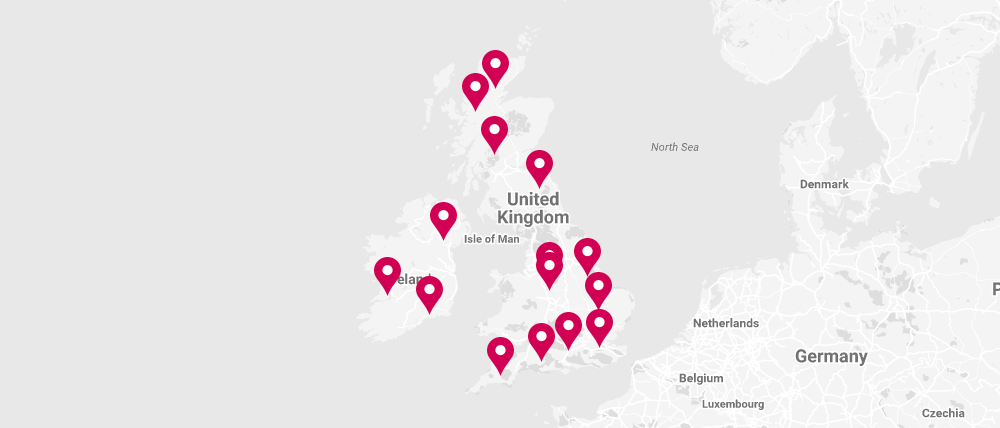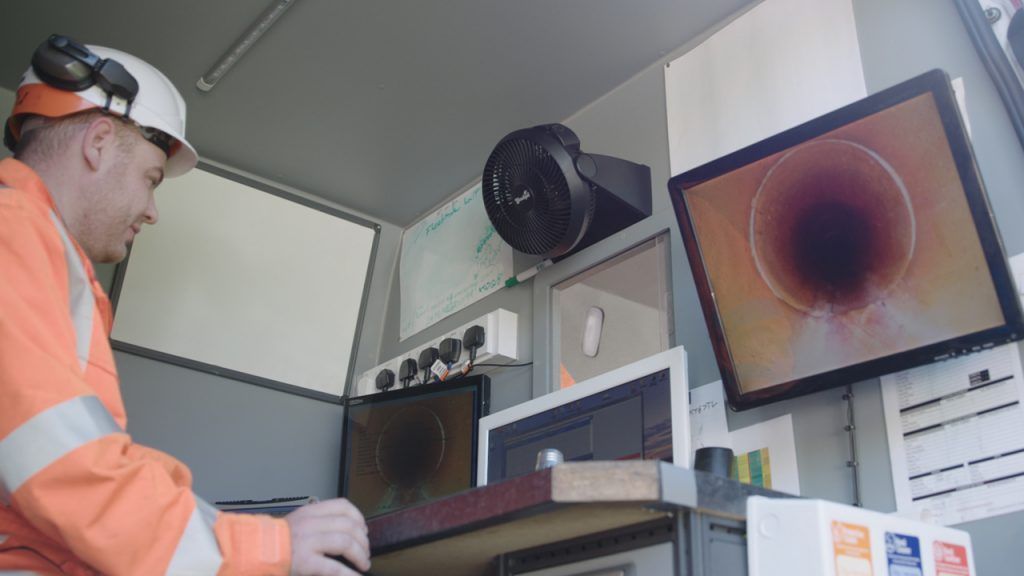
Resources
How to Change Career
- 3rd January
"I want a career change but I don't know what to do!"
Making a career change can be a scary prospect, especially for those considering making the move in later life, but it can also be an exciting opportunity to embark on a new path. When you have been working in a certain field for several years, starting over in an entirely different line of work can give you the chance to reinvent yourself and find new avenues for professional fulfilment that you may not have previously considered.
Successfully changing career requires a specific mindset and the correct approach. This is not a decision to be rushed into, and you will need to make sure you are asking yourself the right questions and preparing yourself properly for the challenges ahead. In the following guide, we cover just that, helping you consider the key factors in changing careers.
What Do You Want Out of a New Career?
The first question you should ask is: what do you want out of your new career? You may not have been satisfied by your previous role and the choices you made leading up to it, and so this is your opportunity to change that.
As such, those considering a career shift should consider a number of factors:
- What kind of day-to-day work would you find fulfilling?
- What kind of work-life balance are you looking to achieve?
- What are your salary needs and expectations?
- Which is most important to you: money, flexibility or the nature of the work itself?
- What kind of longer-term goals would you like your new career to help you achieve?
These are the kinds of question that anyone looking for a new job should be thinking about, and those who are changing career in later life will actually have an advantage when it comes to answering them; you’ll have a more realistic and informed understanding of your own needs and capabilities than someone who is just starting out, which will increase your chances of making the right choice.
Marketing Your Skills On a CV When Changing Careers
Another key issue to consider when changing careers is the skills you possess, and how they could be applied to a new field of work. If you have been searching for a new role for the past few years, you will probably have a better and more informed view of your professional strengths and weaknesses than someone who is just starting their job search, so you will be in a better position to pick out a role that plays to your best qualities.
However, the flipside of this is the likelihood that much of your prior job experience or existing qualifications will no longer necessarily be directly relevant in your new field, which poses a challenge when putting together a CV. Rather than putting together a resume that focuses on the past roles you’ve held, you’ll want to instead place the emphasis on your transferable skill set.
To achieve this, look over your work history and identify key accomplishments and projects you have completed that really demonstrate the practical application of your talents, in a way that highlights how those skills could be transferred to a new setting. The key is to get prospective employers to focus on what you’re capable of doing in future, rather than what you’ve done in the past.
If you have never created a professional CV for yourself before, it can be difficult to know where to start. For more information on this topic, have a look at our guide to CV writing for manual workers, or download our free manual workers CV template.
How to Write a Cover Letter for a Career Change
A cover letter is an opportunity to showcase your enthusiasm for a new industry. This is where you can put your CV into context, explaining how your past experience makes you suitable for your new role. Start with a strong, clear statement of purpose in your opening paragraph. Mention the specific role you are applying for and how you discovered the opportunity.
As you move into the body of the letter, focus on identifying and highlighting transferable skills. Reflect on the skills you have gained from your previous career that are applicable to the new role. These might include project management, customer service or technical expertise. Use specific examples to demonstrate how you have successfully applied these skills in the past, and try to quantify achievements where possible, such as increasing sales by a significant percentage through effective client relationship management. Clearly link these skills to the responsibilities of the job you are applying for, showing how they can be directly applied.
Another important aspect to emphasise is your adaptability and ability to learn. Highlight your commitment to learning new skills and adapting to new environments, which is crucial when changing industries. Mention any relevant activities, such as courses, certifications or self-study, that relate to the new industry to underline your commitment further.
Demonstrate your understanding of the new industry by discussing trends or challenges and how you could contribute positively. If you have a personal connection to the industry or a long-standing interest, mention this to reinforce your motivation for the career change.
Conclude your cover letter with a strong call to action. Reiterate why you are a strong candidate for the role, summarising your relevant skills and enthusiasm for the industry. State your eagerness to discuss your application further in an interview, and mention that you will follow up within a week.
Make sure to provide your contact information and end with a professional sign-off such as "yours sincerely," followed by your name.
What Considerations Must You Make When Planning to Change Careers?
Making a career change is unquestionably difficult, and there will be points when you may feel that you are not entirely prepared to make the step into a new line of work. At these times, it is vital to think practically about what exactly you need to turn your ambitions into reality, and the steps you’ll need to take to achieve this.
If you lack the training and qualifications necessary to apply for a given role, then consider whether you may need to pursue a vocational course, or to start looking for roles that offer training for new starters; if money is a short-term concern, it’s also worth looking into the funding options available that can help support you through this retraining process.
Meanwhile, if you feel that you lack a practical understanding of what it is really like to work in your chosen field, then have a look around for sector-specific talks, seminars and recruitment events that can help give you an insight, or look for relevant testimonies from current professionals on recruitment websites and online communities.
What Job Is Right for Me? UK Drainage Industry Jobs
For a less commonly explored option, those considering a career change may find the drainage industry represents a challenging, active and dynamic career path. Drain repair and maintenance provides staff with plenty of opportunities to get out on the roads and carry out hands-on work for households and businesses, working directly with clients as part of a team and gaining significant technical expertise over time.
As the UK’s market leader in drainage and wastewater utilities, we regularly employ career changers, and we are proud to welcome them into the drainage sector as one of its leading employers. You can read more about their success stories here.
If you are interested in the opportunities this exciting sector has to offer, Lanes Group has roles that are suitable for people without prior experience, with the promise of industry-leading perks and long-term career progression. To find out more about the vacancies we currently have on offer, you can explore our jobs here.
Our Offices, Divisions & Depots


Lanes Group Ltd,
17 Parkside Lane, Parkside Industrial Estate, Leeds, LS11 5TD
Lanes Group ltd
Customer Solutions Centre
9 Cambridge Avenue
Slough
SL1 4AY



Our News Feeds
Andy’s jobs journey reaches fulfilment down in the sewers
Andy led the Lanes emergency team, working on behalf of Thames Water, that first responded to the discovery of the Islington concreteberg.
Why Lanes Group - and the drainage sector - is perfect for those looking for a new career
Find out more about what makes the drainage sector such an attractive proposition for those looking for a change in career.
Where to start when making a career change
Let us help you understand your options when it comes to changing careers
How to successfully apply for a role as a Lanes Group CCTV engineer
Find out more about what we're looking for in our CCTV engineers, and how to maximise your chances of securing a role with Lanes Group.
What it’s actually like to work in the drainage industry
In this article, we look at the many great things about working in the sector and show you what it’s really like to have a career in this growing sector, while busting a fair few myths in the process.
Vicky has perfect role keeping online sales flowing
Personality, determination and a very good understanding of the drainage industry – all qualities that Vicky Smith puts to excellent use as an online sales executive at Lanes Group plc.